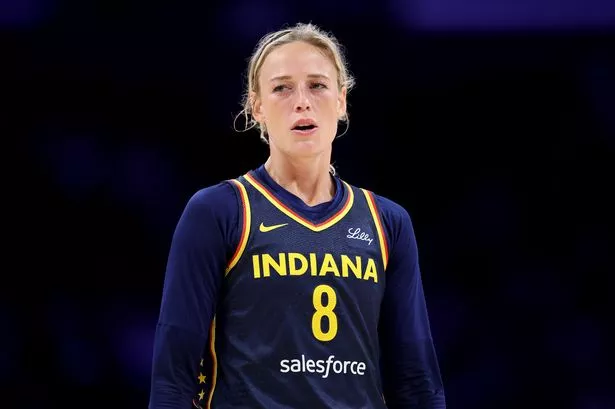Veteran guard Sophie Cunningham has expressed serious concerns regarding the future of the WNBA as negotiations continue to stall between the league and the players’ union over the Collective Bargaining Agreement (CBA). Currently a free agent after suffering a season-ending MCL tear, Cunningham’s candid remarks highlight growing uncertainty within the league.
Speaking with Front Office Sports at a sports bar in Manhattan, Cunningham reflected on her recent experience as a caddy for Caitlin Clark at an LPGA event. The 29-year-old player, who was traded to the Indiana Fever for the upcoming 2025 season, averaged 8.6 points and 3.5 rebounds prior to her injury.
Concerns Over League Stability
“There is a lot of uncertainty,” Cunningham stated. “With the CBA, with the money, if we’re even going to have a league next year. And then if people want to come back, we’re trying to keep our core together.” Her comments reflect a broader anxiety among players about the league’s financial future, particularly in light of recent trends where lucrative offers from alternative leagues could entice players away.
Cunningham’s views point to a critical dilemma facing the WNBA: maintaining competitive salaries against a backdrop of rising business revenues. “It sounds good and they can always wave a big number in your face,” she remarked. “But what happens when the business continues to go up? Does that mean our salaries are going to continue to go up, or will they stay the same?”
As negotiations around the CBA continue, Cunningham noted that previous meetings had not yielded significant progress. “I think the last meeting was about two weeks ago,” she mentioned. “I know our execs are talking with their people every single day. I don’t think there’s been much movement. I think at least there’s communication. So that’s the biggest thing for us.” The stakes are high, as the outcome will directly impact salaries, revenue-sharing, and the overall sustainability of the league.
Alternative Opportunities Emerge
Cunningham also weighed in on the emergence of new opportunities for players, particularly citing “Project B,” a recently announced women’s basketball league that promises multi-million-dollar contracts. “I don’t know too much about it. You know, you see stuff on social media, but I also know how social media goes,” she explained. “But, you know, if people are going to be paying you multi-million dollar deals, why would you not?”
The uncertainty surrounding the WNBA’s future and the potential for players to explore alternative avenues reflects a pivotal moment in women’s professional basketball. As negotiations continue and new leagues emerge, the landscape may shift significantly, impacting both current players and the league’s overall viability.
For now, Cunningham and her peers are left navigating a complex web of expectations, financial realities, and the hope that their league can evolve and thrive. The outcome of the ongoing negotiations will be crucial in determining the direction of the WNBA and the future of its players.
